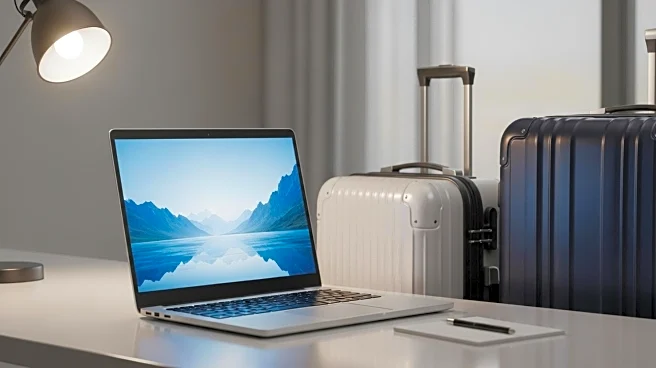What's Happening?
President Trump has announced a new policy imposing a $100,000 annual fee on H-1B visa applications, which affects foreign laborers in specialty occupations working in the United States. This policy is set to take effect on Sunday, prompting major tech companies to advise their H-1B employees to remain in the U.S. or return from overseas before the policy is enacted. Amazon and Microsoft have issued memos warning their employees about the travel restrictions and the potential risk to their worker status. The tech industry, which heavily relies on H-1B visas, faces significant financial implications due to the new fees. Other industries, such as healthcare, also depend on international labor, with a substantial portion of medical residents being H-1B visa holders.
Why It's Important?
The new policy could have widespread implications for U.S. industries that rely on specialized foreign labor. Tech companies, which are among the largest employers of H-1B workers, may face increased operational costs, potentially impacting their workforce and business strategies. The healthcare sector, already facing a doctor shortage, could experience further strain if international medical graduates are affected by the visa fee. Additionally, the policy may disrupt families and create humanitarian concerns, as noted by foreign governments like India and South Korea. The uncertainty surrounding the policy's implementation could lead to significant challenges for both employers and employees.
What's Next?
The Trump administration is working to clarify the details of the new policy, indicating that the fees may not apply to existing visa holders re-entering the country. However, the policy will affect new applicants in the next cycle. Companies and foreign governments are likely to continue assessing the implications and may seek to negotiate or challenge the policy. The tech industry, in particular, may explore alternative strategies to mitigate the impact on their workforce.









